Pakistan calls for holding India accountable for violating int’l humanitarian law in Kashmir
 —File Photo
—File PhotoUNITED NATIONS: A top Pakistani diplomat has urged the world community to intervene and hold India accountable for its “grave” breaches of international humanitarian law and war crimes in occupied Kashmir, as he highlighted the decades of Kashmiri people’s sufferings now compounded by the coronavirus pandemic.
“Our efforts to fight COVID-19 and its humanitarian impact must not remain oblivious to challenges posed by the pandemic in situations of protracted conflicts, foreign occupation and alien domination,” Ambassador Munir Akram told the Economic and Social Council (ECOSOC), the economic arms of the United Nations.
Speaking in the 2020 Humanitarian Affairs Segment (HAS), he also briefed the 54-member Council on the measures taken by Prime Minister Imran Khan’s government to mitigate the spread of coronavirus and address its effects as well as to provide relief to the vulnerable people and initiate plans to put Pakistan on the road to economic recovery.
Dealing with the worsening humanitarian situation in Indian occupied Kashmir, the Pakistani envoy said the people, who were already reeling under a 10 months digital and physical lockdown, have been denied adequate access to medical supplies and facilities and high-speed internet in the wake of the pandemic. Hundreds of Kashmiri political leaders and abducted youth continued to languish in crowded jails across India, making them vulnerable to the virus.
“In blatant violation of international humanitarian law, the Indian government has also denied access to all U.N. and non-UN humanitarian agencies and civil society organizations,” Ambassador Akram told the meeting.
“While the world’s attention was riveted on combating the Covid-19 virus,”, he said, “India has taken further steps, almost by stealth, to change the demography of occupied Jammu and Kashmir by promulgating new ‘domicile’ regulations that would enable settlers from all over India to colonize the occupied State in violation of Security Council resolutions and the Fourth Geneva Convention.
“Defying the UN Secretary-General’s global call for ceasefire, India has also intensified its violations of the ceasefire along the Line of Control in Jammu and Kashmir and the ‘Working Boundary’, he said, pointing out more than 1,000 ceasefire violations since January 1, and targeting civilians on the Pakistan side of the LoC, killing 6 and injuring 82 civilians.
“In flagrant violation of Article 28 of the Fourth Geneva Convention, India has frequently placed its artillery guns within crowded Kashmiri villages, using them as human shields, to avoid Pakistani retaliation for its ceasefire violations.”
As regards actions taken by Pakistan to contain coronavirus, he told the Council that a robust institutional mechanism was set up under the National Security Committee (NSC) and National Coordination Committee (NCC) to ensure a unified response.
The measures included smart lockdowns, international travel restrictions, school and university closures, cancellation of public events, localized quarantines, strengthening of country-wide health response and varying levels of lockdown in cities across the country.
Only recently, he said, the government had eased some of these restrictions as the economic cost of an indefinite lockdown was not sustainable. “It was also feared that any prolonged lockdown would have caused an even greater humanitarian crisis triggered by hunger and unemployment in the country.”
Ambassador Akram said that Prime Minister Khan has launched a package of $ 8 billion for vulnerable groups covering relief measures for daily wage workers, low-income families, financial support for Small to Medium Enterprises (SMEs), support for health and food supplies and fuel prices, and procurement of emergency services.
“The government has also announced an emergency cash assistance initiative benefiting the most vulnerable refugee families impacted by the COVID-19 pandemic.”
For developing countries, he said, there are additional challenges as remittance flows to low and middle-income countries are expected to shrink by 20 % this year – equivalent to $110 billion – just as direct foreign investment in these countries is also expected to decline by a third. In this regard, Prime Minister Khan has launched a “Global Initiative on Debt Relief” which aims to seek urgent debt relief for low- and middle-income countries.
“Developing countries must be supported in overcoming the massive impact of COVID-19 by providing fiscal space and financial relief to manage the unfolding crisis.”
Pakistan, he said, has also launched “Pakistan’s Preparedness and Response Plan” (PPRP), worth US $ 595 million, in a bid to strengthen Pakistan’s capacity in emergency prevention, preparedness, response and build health systems for a period of 9 months from April to December this year.
“We are now reaching out to international partners, relevant UN agencies and donors to reduce the social and financial impact of the pandemic on the most vulnerable people in the country by providing the strongest possible support to the response plan.”—APP

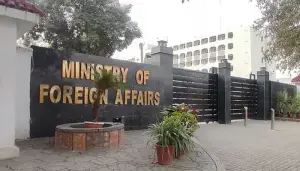
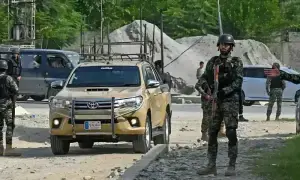
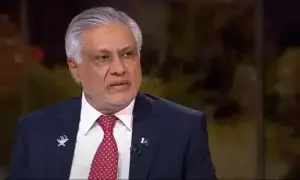
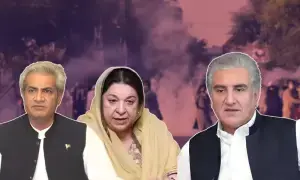
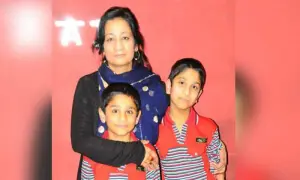
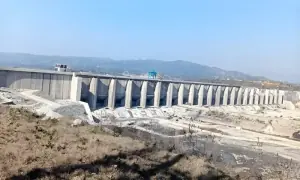

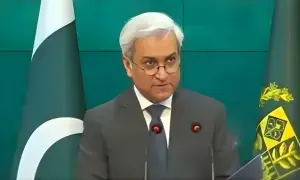

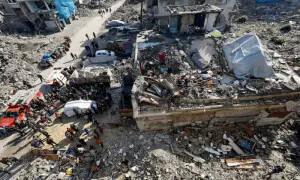

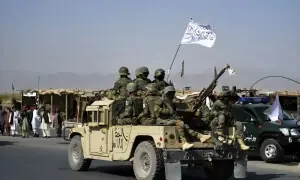
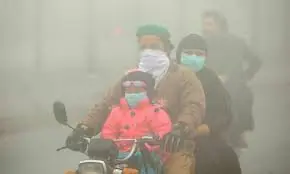
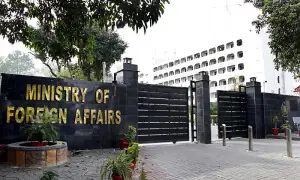
Comments are closed on this story.